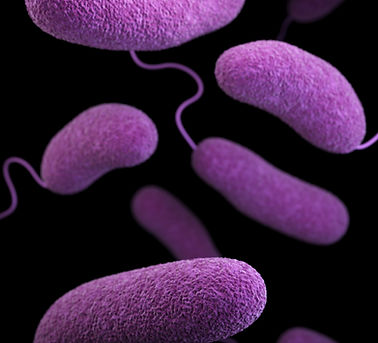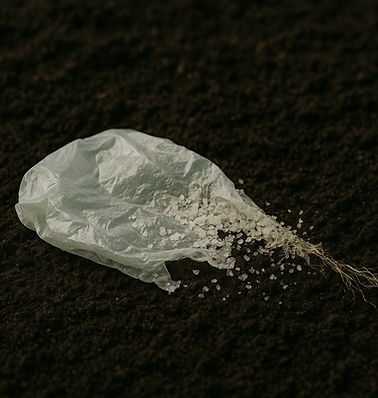
P-Life News
Welcome to our news hub, where we share the latest updates, newsletters, and articles on sustainable solutions and cutting-edge technology. Discover in-depth insights into our biodegradable additives, industry innovations, and the global impact of our advancements.
Stay connected with P-Life for the knowledge and updates that inspire a cleaner and greener future.

News Letter 11-Nov-25
P-Life Japan is proud to announce that Global Commercial Director Bruna Folster will speak at COP30 Brazil, presenting P-Life’s scientific advancements in biodegradation, innovation, and sustainability. Her lecture will highlight research on the microbial decomposition of persistent plastics and the global impact of
P-Life technology contributes to reducing microplastics and advancing a circular economy worldwide.
News Letter
As Seen in Forbes: P-Life Eliminates Microplastics at the Source
Forbes Scotland recently featured P-Life Japan Inc. for its pioneering biodegradable plastic technology—a breakthrough solution that helps eliminate microplastics through a certified additive derived from coconut palm oil trees.


News Letter
Natural Soil Bacteria Proven to Break Down Treated Plastic
In recent months, Asahi Shimbun, Yomiuri Shimbun, and Mainichi Shimbun—Japan’s Top 3 national newspapers—have all highlighted how P-Life enables the real biodegradation of polypropylene and polyethylene.
This is achieved through our proprietary additive derived from coconut palm oil trees, offering a safe, natural, and scalable solution to the global plastic waste crisis.
News Letter
P-Life-Treated PP Degraded by Soil Microbes Found in School Grounds
A collaborative research team including P-Life Japan Inc., Keio University, ITO EN, and SI Resin Industries has discovered microorganisms in elementary school soil capable of breaking down P-Life-treated polypropylene (PP) plastic straws.


News Letter
Keio University Confirms: Microorganisms Found That Biodegrade P-Life-Enhanced Polypropylene
The study—led by Prof. Kenji Miyamoto and a multidisciplinary team including Keio University, P-Life Japan Inc., ITO EN, and SI Resin Industries—was presented at the Molecular Biology Society of Japan conference and represents a crucial step forward in the fight against plastic pollution.
News Letter
Featured on GRIT DAILY: P-LIFE’S Breakthrough in plastic Biodegradation
In a recent article published by Grit Daily, P-Life Japan Inc. is recognized for its major scientific breakthrough: the development of biodegradable plastic technology that works without leaving microplastics behind.


News Letter
P-LIFE X KEIO UNIVERSITY: Japanese soil Microbes degrade PP Plastics with biodegradable additive
Soil samples from Kamakura Elementary School revealed bacteria capable of breaking down P-Life-treated PP
News Letter
P-LIFE & KEIO University discover microorganisms that degrade plastic without microplastic
During the 47th Annual Meeting of the Molecular Biology Society of Japan, a groundbreaking study was presented confirming that P-Life’s technology enables polypropylene (PP) plastics to biodegrade through the action of specially identified microorganisms—leaving no toxic residues or microplastics behind.


News Letter
Science Confirms It: P-Life Plastics Degrade Without Microplastics
P-Life Japan Inc. is proud to share the findings of a new article published by Tech Times, highlighting our latest scientific breakthrough in partnership with Keio University. Our proprietary biodegradable additive has been proven to degrade plastics safely, leaving no microplastic residues—a major leap toward sustainable plastics.
Press Release 25-Nov-24
Microorganisms decompose persistent Plastic Straws!
Our research team as Isao Toyama, President of P-Life Japan Inc., Kenji Miyamoto, Professor (Department of Biosciences and Informatics, Faculty of Science and Engineering, Keio University), Ayaka Futaki (Department of Biosciences and Informatics, Faculty of Science and Engineering, Keio University), Ying Huang, Researcher (Keio Leading-Edge Laboratory of Science and Technology), Yoshito Abe, SI Jushisangyou, Inc., and Shuji Uchiyama, ITO EN, Ltd. has succeeded in obtaining degrading bacteria for Polypropylene (PP) to which P-Life (*1) is added to render biodegradability to non-degradable plastics.


News Letter 11-Nov-24
Making Sense of Plastic Biodegradability
The research in this article focuses on biodegradation—a fancy term for a process where plastic breaks down into smaller, non-toxic components that can be absorbed by nature. Think of it as giving plastic a timer: after it’s done serving its purpose, it starts to break down when exposed to light, heat, and air. This technology developed by P-Life Japan Inc. is added to the plastic, making it susceptible to breaking down naturally.
News Letter 14-Oct-24
How P-Life is Turning the Tide?
P-Life’s additives make plastic behave responsibly. It lasts as long as needed for its intended use (whether it’s a package on a shelf or a protective barrier during transport) but will break down naturally once exposed to oxygen, light, and heat, finally transforming into harmless components like CO2 and H2O(water). Think of it as giving plastic a retirement plan.


Join our Newsletter
Stay Updated with Latest News